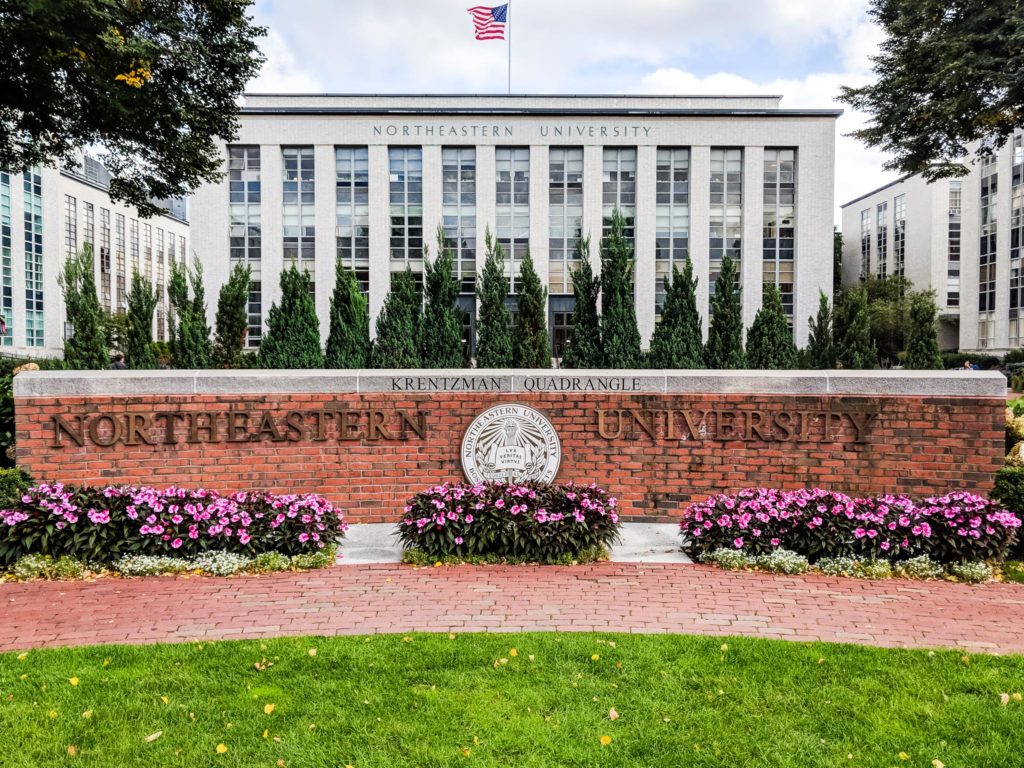NU organizations form student task force against fascism
June 30, 2019
Three Northeastern student organizations — the Student Government Association, or SGA, the Northeastern Student of Color Caucus, or NSCC, and the Graduate Employees of Northeastern University — launched a joint task force Monday as a direct response to the discovery of what appeared to be fascist organizing materials in Snell Library.
“This task force is really a call for transparency from the office of [President Joseph E. Aoun] and the rest of the university and administration to keep us informed and apprised of all important matters like this,” said Chris Brown, president of the SGA and a second-year mathematics and science combined major.
In a public letter, the group outlined the task force’s first agenda: asking Aoun’s office to officially disclose the findings of the investigation into the fascist materials and provide greater support for marginalized communities on campus.
“What we’re asking for is that the president takes this seriously and that the president actually states publicly to the Northeastern community that this kind of stuff is unacceptable,” said Daniel Patterson, a second-year computer science doctorate student and an organizer with the graduate student union. “[They are] essentially saying that [they] don’t think this exists, that [they] don’t think this is a real problem.”
The NU administration has yet to publicly acknowledge the discovery of the pamphlets and has not shared details of their investigation, although Vice President of Communications Renata Nyul wrote to The News that there is no further proof a fascist organization exists on campus.
Representatives of the NSCC, SGA and the graduate student union attributed the administration’s lack of transparency and accountability as some of the reasons for the coalition. James Lyons, co-founder and secretary general of the NSCC, said the office of the president has been uncommunicative in the past.
“This is a repeat action that we see occurring from many different university representatives. We have to take these seriously [because] they don’t end up getting bumped up on the radar of concerns or the list of priorities,” said Lyons, a third-year media and screen studies and political science combined major. “These are the calls that don’t go back out. These are the emails that don’t get answered. And students are asking this genuine fear of ‘Am I even safe in my classroom anymore?’”
Patterson voiced concerns about “fearmongering communication” regarding past student efforts to organize, specifically regarding the opposition of the U.S. government’s Muslim ban in 2017. He said international graduate students, in particular, were discouraged by Northeastern against collective action because it might “jeopardize [their] status as a student,” which he described as “a complete lie.”
“They were trying to cynically capitalize on the fact that people had all this uncertainty to try to fight against our right to organize,” Patterson said.
Representatives of the task force also told The News that the organization will exist indefinitely because the impact of fascism and racism is persistent. In the past, similar task forces have existed within the NSCC and SGA to serve as a meeting ground for individuals to voice their ideas on combating issues of discrimination.
“We’re not sure when this task force will dissipate,” Lyons said. “We thought that combining [our] forces would be our way to contribute to the task force and then grow that initiative from there.”
In addition to requesting communication from Northeastern’s administration, the NSCC and the SGA have been working together to expand and promote an online grievance form. The platform would allow students to report unethical practices on campus through the Office of Academic and Student Affairs website and eventually through the myNortheastern portal. The force will also discuss implementing diversity and inclusion training in all introductory courses as well as conducting exit interviews for faculty and staff of marginalized identities.
According to Brown, the task force’s long-term vision is to “construct a better system,” where a student task force is not required to effectively communicate with the Northeastern community.
“SGA’s goal is to better facilitate conversation between the administration and students so that way we don’t have to form task forces in the future,” he said. “The administration is not the enemy here. We need to work together to find a solution because there are administrators of color as well.”
In the meantime, the task force announced it is actively looking for partnering organizations and individuals, urging the NU community to “join [them] in expressing [their] collective condemnation of this ever growing threat to [the] campus.” The collective action may be gaining traction — since its announcement, the task force said they have been contacted by NU College Democrats, New Renaissance Theatre, NU Political Review and NU Pride.
Lyons said the issue of institutional accountability is bigger than the campus. “This conversation is beyond just Northeastern. If Northeastern tries to say it cares about embracing inclusion, it needs to say ‘Well, we need to redefine this conversation in a way that actually matters.’”
Correction: This article previously stated that one of the founding organizations of the task force was called Northeastern Students of Color Caucus. It is actually Northeastern Student of Color Caucus.












